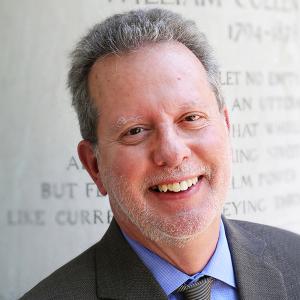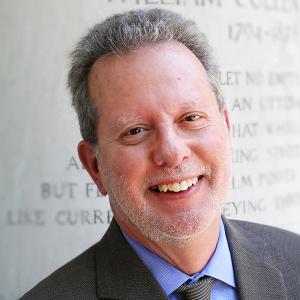Tom Ehrich is a writer, church consultant and Episcopal priest based in New York. He is the author of Just Wondering, Jesus and founder of the Church Wellness Project. His website is www.morningwalkmedia.com. Follow Tom on Twitter @tomehrich. Tom's posts appear via RNS.
Posts By This Author
5 Ways Churches Can Help Stop the Ebola Hysteria
Once the first person in America died from Ebola, the usual bigots and ideologues blamed it on President Obama, whom they loathe. Some suggested Obama deliberately allowed the virus into the U.S. for nefarious purposes.
“He wants us to be just like everybody else, and if Africa is suffering from Ebola, we ought to join the group and be suffering from it, too. That’s his attitude,” said Phyllis Schlafly, the matriarch of America’s religious right.
Every misstep will be laid at the president’s doorstep, as if he personally ordered a Dallas hospital to screw up.
Such nonsense plays well in an election year, at least with a certain portion of the electorate. But the question remains: How are we as a society to deal with a potential contagion that could impact our lives?
Our worst instincts, as always, will be to blame whatever we don’t like, to imagine barriers and travel bans that would protect us, and to turn against each other. Schlafly, for one, blames Obama personally for “letting these diseased people into this country to infect our own people.”
From Church Triumphant to ‘Least of These’
News articles about turmoil at General Theological Seminary had immediate impact on those of us who attended Episcopal seminaries.
But the news “went viral” far beyond that small coterie and for reasons beyond nostalgia.
For one thing, it’s a juicy soap opera. Faculty playing hardball, then finding themselves unemployed. A dean pushing back, then losing credibility as word about him spread. A board looking confused and high-handed. Students wondering if they, too, should go on strike.
But impact goes beyond the particular event itself. For something fundamental seems to be changing.
The Rise and Fall of the American Seminary
General Theological Seminary’s campus in the Chelsea neighborhood of Manhattan is everything you’d want in an urban seminary.
Handsome buildings, a chapel at the center, quiet walkways in a noisy city, calm places to read and pray. All serving a wonderfully diverse student body eager to minister in a changing world.
It’s like the best of historic church properties: harking back to a day of noble architecture and tradition and yet looking outward to a frenetic city and changing religious environment.
Why, then, is GTS on the verge of financial collapse and, now, paralyzing internal conflict? Its dean is under attack, 80 percent of its full-time faculty were dismissed, its board is floundering — all in the glare of press and blogosphere.
Why? For the same reason that historic churches and denominations are trapped in “train wrecks.” Their time has passed.
Why Multigenerational House Sharing May Be the Wave of the Future
For one year, my wife and I are living 2,700 miles apart.
She lives in a one-bedroom apartment here, south of San Francisco. Each weekday she walks two blocks to the home of our middle son and his wife, where she cares for their 9-month-old son.
“Granny nanny” is what they call this phenomenon. Once maternity and paternity leaves expire, grandparents across the country are moving close to their adult children, maybe into their homes, to provide child care so both parents can pursue their careers.
A six-hour plane ride away, I am back in our Manhattan apartment, where our youngest son, age 23, is living at home until he lands a job in the worst job-finding environment since the Great Depression.
Our oldest son, meanwhile, is adapting his country house to become a multigenerational household next year, when my wife returns east. I have already had a taste of caring for their 8-month-old daughter, and it is wonderful.
It seems we have joined a growing trend toward sharing living space: three generations (grandparents, parents and children) or two generations (parents and adult children).
After a Summer of Crisis, Churches Can't Go Back to Business As Usual
When churches conclude their summer hiatus and resume full-scale ministries this week, much will have changed from a year ago — outside their doors.
Conditions might have changed inside, too. But it is the world outside that demands fresh attention in mission and ministry.
Ferguson, Mo., has happened, revealing disturbing trends in law enforcement and deep fault lines between white experience and black experience.
Russia’s aggression against Ukraine happened, threatening a resumption of dangerous tensions between Moscow and Western democracies.
The Islamic State of Iraq and Syria happened, raising the dreaded specter of a take-no-prisoners war on modernity, reason, progress, women and other faiths.
The 113th Congress happened, mired in systemic dysfunction, with one party determined to cripple a black president and to channel more wealth to the wealthy.
The Koch brothers and their megabuck cronies happened, changing the face of electoral politics with unprecedented infusions of cash and ideological vitriol.
The two-tier economy happened, with one tier doing extraordinarily well and a much, much larger tier falling further behind, leaving despair among all age groups.
Border wars between terrified migrants and swaggering white men bearing arms against children happened, threatening America’s true core value as a welcoming nation promising freedom.
These outside-the-walls developments have little to do with the usual church fussing — except to say that it’s time for church people to stop their usual fussing.
Churches Must Be Safe Places
Church leaders often worry that Sunday morning is the “most segregated day of the week.”
On Sundays, churchgoers gather inside congregations that are remarkably monochromatic. Whites with whites, blacks with blacks, Latinos with Latinos, Koreans with Koreans, and so on.
This phenomenon, however, is more than discomfort with diversity. It is also a search for safety. In the historic black church, for example, worshippers can assert the dignity and worth that a white society denies them. For three hours on Sunday, the need to avoid offending whites doesn’t govern their lives.
As we are learning in Ferguson, Mo., African-Americans feel unsafe — far more than many whites have realized. Young black men, for example, flinch whenever a police car passes — a vulnerability that money, job, and education can’t overcome.
Has Humanity Entered a New Depth of Degradation?
I was scanning my Facebook news feed when I read articles about murders in Iraq.
It seems Islamic extremists in Syria are using beheadings and crucifixions to intimidate opponents. Photos and videos look eerily like scenes from illustrated Bibles.
I read about right-wing hate speeches on the steps of the Massachusetts State House in Boston, stirred by opposition to immigrants but proceeding on to everyone else they hate.
I read about gay bashing in the military. Anti-Semitism in Europe. Domestic violence in Baltimore. And on and on.
I have two responses. First, I applaud those who post such things on Facebook. Cat pictures are fine, but if this ugliness is going on in our world, we need to know about it.
Second, has humanity entered some new depth of degradation? Or do we just know more?
What Congress Can Learn from a Town Dump
I went to the town dump today, and I found it open, functioning, filled with people doing the right thing in the right way, giving useful advice to a novice, and able to drive in and out without mayhem, all under the watchful eye of a single employee.
Its no-nonsense efficiency reminded me of church suppers, where everything seems to work because people are helping, not managing. Imagine Congress being that capable.
I suppose we should be thankful that Congress scampered out of town for five weeks. If they’re going to do nothing, at least they should do nothing out where the constituents who elected them can take their measure.
I suppose we should also be thankful that July 2014 only had 31 days. Imagine a longer month for suicidal conflicts and epidemics.
We should be thankful, too, that the world’s three great religions — wealth, technology, and the Abrahamic faiths — are getting on people’s nerves. Irritation might lead us to expect better.
The Headlong Retreat into Childhood Partisanship
When I was a child, I lived in a black-and-white world of all-this or all-that.
Humankind meant my family. The world meant my neighborhood. Religion meant my church. Politics meant my father’s beliefs.
Oh, I was aware that more was out there, but it had little claim on my imagination or loyalties. My world was complete. There were no gray areas, no compromises, no maybes.
That was a child’s view, reality writ small. In time, I advanced beyond it, until the world became large, complicated, and gray, with places beyond imagining, people totally unlike anyone I knew, ideas beyond anything I heard at my parents’ table.
It’s called growing up. Discovering through knowledge and experience that the little I grew up knowing wasn’t enough to know.
We are witnessing today a headlong retreat into the not-knowing and simplistic partisanship of childhood. Ideas that make people uncomfortable are banished. Science that calls faith into question is shouted down. Politics isn’t just hardball, it’s dumb-ball: I must win, at any cost, and you must lose. I am right, and you are wrong. My tribe is the only tribe that has value and rights.
8 Things the Church Needs to Say
If Christians stopped bickering about church, presenting sex as a first-order concern, telling other people how to lead their lives, and lending our name to minor-league politicians, what would we have to say?
We need to figure that out, because we are wearing out our welcome as tax-avoiding, sex-obsessed moral scolds and amateur politicians.
In fact, I think we are getting tired of ourselves. Who wants to devote life and loyalty to a religion that debates trifles and bullies the outsider?
So what would we say and do? No one thing, of course, because we are an extraordinarily diverse assembly of believers. But I think there are a few common words we would say.
How Soccer Differs from the World of Partisan Politics
After the final whistle ended a hard-fought World Cup match, Brazilian star David Luiz consoled Colombian star James Rodriguez.
They exchanged jerseys to show their mutual respect, and Luiz held Rodriguez close as the losing player wept in frustration.
This poignant moment was much more inspiring than a string of fouls, some intentional, that sent Brazil’s Neymar to the hospital and left players on both sides shouting in agony.
During play, soccer seems eerily like the world outside: opposing forces collide, do anything to gain advantage, bamboozle the game’s referees, shout in mock pain and real pain, challenge joints and muscles beyond their capacity, give everything for their nation’s cause — all while spectators whoop and holler in the safety of the stands.
COMMENTARY: On the Fourth, Setting Aside the 'I' for 'Us'
The New York Knicks have a dilemma: Hold on to high-scoring star Carmelo Anthony, the consummate me-first ball hog, or build their future on team players.
I am hoping new coach Phil Jackson gives Anthony his walking papers. The Knicks have been a poor basketball team with Melo’s I-am-the-man selfishness. They will be better with players who know how to work as a unit.
As the coaching cliche puts it, “There is no ‘I’ in ‘team.’” There is, however, an “I” in “big bucks,” and in “I am the star,” and in “watch my magic.”
It’s the very “I” with which Satan tested Jesus in the wilderness. It’s the “I” that builds empires on the suffering of many and destroys them just as quickly. It’s the “I” that cripples families and ruins enterprises.
Failing to See God's Love
You are a pastor. You work six days a week, sometimes seven. You are on call 24/7. Every detail of your life is out there for public consumption. People project their unresolved issues onto you, especially parental issues from their childhoods.
By church rules, you are entitled to a sabbatical, perhaps three months every seven years. But when you propose it, you hear what one pastor heard the other day: “Sabbaticals are for academics who are making a significant contribution to their field, not for clergy who want an extended vacation and can’t take working for a living.”
What do you say?
In that one dismissive sentence, someone you trust tells you your work is insignificant, you want a benefit that you don’t deserve, and you’re lazy. What do you do?
COMMENTARY: More Christian Influence? Be Careful What You Wish For
Right-wing politicians are fond of saying we need more Christian influence in American political life.
I don’t disagree with that. But I wonder if they have any idea what they are asking. For a nation guided by Christian principles would bear scant resemblance to their political agenda.
Take immigration, for example. Jesus practiced radical welcome, not the restrictive legalistic barriers envisioned by conservatives, and certainly not the denigration of dark-skinned immigrants and the unleashing of armed posses along the Rio Grande.
God’s people, after all, began as immigrants and refugees. God saw them as a “beacon” to all nations.
COMMENTARY: What Power Madness Has Done to Women — and Men
We have weapons, and, in our brokenness, we tend to use whatever weapons we think will work.
Some of our weapons get assigned gender tags. Men, we say, tend to shout, bully, interrupt, trivialize, ignore “no,” and turn to violence. Women, we say, tend to manipulate, conspire, and blame.
But those tags mean little, and they don’t begin to describe the balance of abuse, which, as women know and men are learning, is overwhelmingly abuse of women by men.
Some weapons aren’t about gender. Some people use social status as a weapon. Age stifles youth, and youth embarrasses age. Long-timers freeze out newcomers, and the new form their own exclusive tribes. Wealth bullies poverty. The dominant race represses minorities. Heterosexuals bully homosexuals. Those with hiring power hire their own kind. More and more carry firearms and seem eager to use them.
COMMENTARY: Power Elites Are Waging War on the Foundations of Democracy
The two most critical requirements for democracy are freedom of the press and an educated citizenry.
The one informs the people and brings government and power into the open. The other enables people to comprehend information and to discuss opinions without resorting to panic and violence.
Power elites have declared war on both requirements.
These include “big money” oligarchs, such as the people who gather around the Koch brothers, politicians who cater to the wealthy in exchange for campaign contributions and government officials who have come to identify with the corporate and financial interests they regulate.
Through acquisitions of newspapers and television outlets and intimidation of reporters, these power elites seek to turn the press into propaganda vehicles and to distort information.
COMMENTARY: Rolling a Joint, a Metaphor for a Nation Losing Its Way
I am sweating on the treadmill when a young man walks onto the patio outside my window, sits at a table, and spreads out his drug paraphernalia.
He folds a piece of white paper to form a work surface. He measures a brown, leafy substance onto the paper, then, using a subway fare card, mixes in a white powder.
Next he puts half of his pile into a cigarette paper and carefully rolls it into cylinder shape. Now he rolls the other half. Both joints go into a plastic medicine bottle.
Off he goes down a stairway, pausing to light up, then on to his apartment in an adjacent building.
The moral calculation is that not a single one of the people around him matters at all. This is the casual face of anomie, the breakdown of moral guidance and resulting alienation from society.
How Brown v. Board of Education Still Shapes Our Religious Life
Not long ago, I visited Topeka, Kan., to teach at one of those grand old mainline churches that got caught in the aftermath of Brown v. Board of Education.
The Supreme Court agreed and, in 1954, struck down the “separate but equal” doctrine that had allowed segregation in public schools. That decision set in motion the mass exodus of whites from urban neighborhoods.
So-called “white flight” suburbs sprang up just outside the borders of newly integrated school districts. New schools went up to attract white families, as did housing developments promising a better way of life, code for “whites-only.”
COMMENTARY: Free Market Compensation or a Rigged System?
In a marketplace unfettered by ethical restraint, a sense of duty, concern for others, or even basic shame, 25 hedge fund managers gave themselves a 50 percent pay boost in 2013.
Never mind that hedge funds’ performance, on average, tanked for the fifth consecutive year.
These 25 men wanted big bucks, so they took them: a total of $21 billion. All for managing wealth that someone else created and, except for a few, not managing it particularly well.
The top earner paid himself $3.5 billion for 2013.
For Innovation to Have a Prayer, It Needs to Start with Brokenness
“Innovation” is a warm and fuzzy word — until you dig inside it.
It’s like “community,” a warm and fuzzy term when taken to mean friendships, sharing, common interests, common values, perhaps working together.
But from a gospel perspective, “community” means much more. As Jesus modeled community, it means mercy — turning away from our instinct to judge and to punish. It means compassion — giving to the least, even when our instinct is to disdain.



















